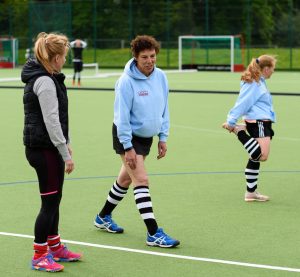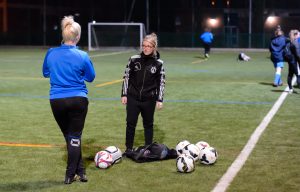
Leading UK charity Women in Sport, today released ‘Beyond 30% – Workplace Culture in Sport’, which delves under the surface of the workplace in sport and reveals a serious gender discrimination problem in the sector.
The report presents new findings and conclusions about workplace culture in sports organisations in the UK, such as National Governing Bodies, leisure organisations, County Sport Partnerships, commercial sports clubs and agencies and sports charities. The report does not include athletes, volunteers or coaches.
A survey of 1152 women and men working in sport, plus 42 in-depth interviews, carried out between September 2017 and March 2018, revealed that some women working in sport feel less valued, actively experience gender discrimination, believe they are paid less for doing the same role as men, face more challenges to progress and feel unfairly judged.
By asking the questions; “Is workplace culture impeding women’s progression?” and “What can be done to ensure that sports organisations have a culture in which both women and men thrive?”, Women in Sport is unearthing truths about the experience of women who work in sport. The Charity’s ultimate aim is for the number of women leading and influencing within sport to grow and for the sport sector to reap the undoubtable benefits of a gender diverse workforce.
Read the full Beyond 30%: Workplace Culture in Sport report.
History, tradition and – in certain sports – a men-only starting point, have all contributed to creating a culture which can feel like a ‘man’s world.’
Ruth Holdaway, CEO of Women in Sport
Ruth Holdaway, CEO of Women in Sport, said: “Women in Sport is committed to ensuring sport develops, and benefits from, equality. Our mandate is to ask difficult questions and delve into the unknown to support women who work in sport as well as those who play it. By shining a light on gender discrimination in the sport workplace we are raising awareness of specific problems so that we can work together with the sector to create positive change.

“History, tradition and – in certain sports – a men-only starting point, have all contributed to creating a culture which can feel like a ‘man’s world.’ I recognise that the sport sector is committed to stamping out gender discrimination, but our report has highlighted that where negative behaviours exist deep within the workplace culture they often go unseen and therefore do not get addressed. By bringing transparency to the issue we can now work with sector leaders to change it.
“We led this research to provide the sport sector with in-depth understanding of the issues that affect women in the sport workplace. Now we want to work with sports organisations to build a more inclusive workplace culture, where both women and men can reach their full potential.”
Chris Grant, CEO of Sported, said: “Sport should be at the forefront of positive change, but as this invaluable research shows, we’re almost certainly lagging behind other sectors. At Sported, we’re proud to be working with Women in Sport to help our grassroots member clubs attack negative stereotypes and become more welcoming to women and girls.

“Ultimately, though, it’s about all of us involved in sport taking responsibility. As most people in formal leadership roles are men, we need to work extra hard to ensure that we have an accurate view of the barriers to women’s access and progression, and are taking effective action to remove them. If we’re not an active part of the solution, we’re probably part of the problem”
Over the past seven years, Women in Sport has monitored the number of women in Board and Senior leadership roles in the National Governing Bodies of England and Wales, via their annual Beyond 30% audit. However, in order to nurture a strong pipeline of future female leaders and bring about sustainable change, the culture in sports organisations needed to be examined. So, in 2017-18 Women in Sport has broadened its research to produce ‘Beyond 30% – Workplace Culture in Sport’.
Women in Sport is now looking for funding to continue this important work and find innovative solutions to break the cultural barriers that are holding women back.




